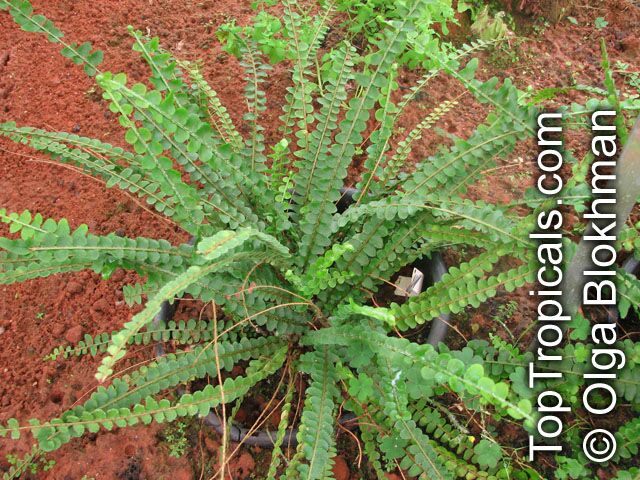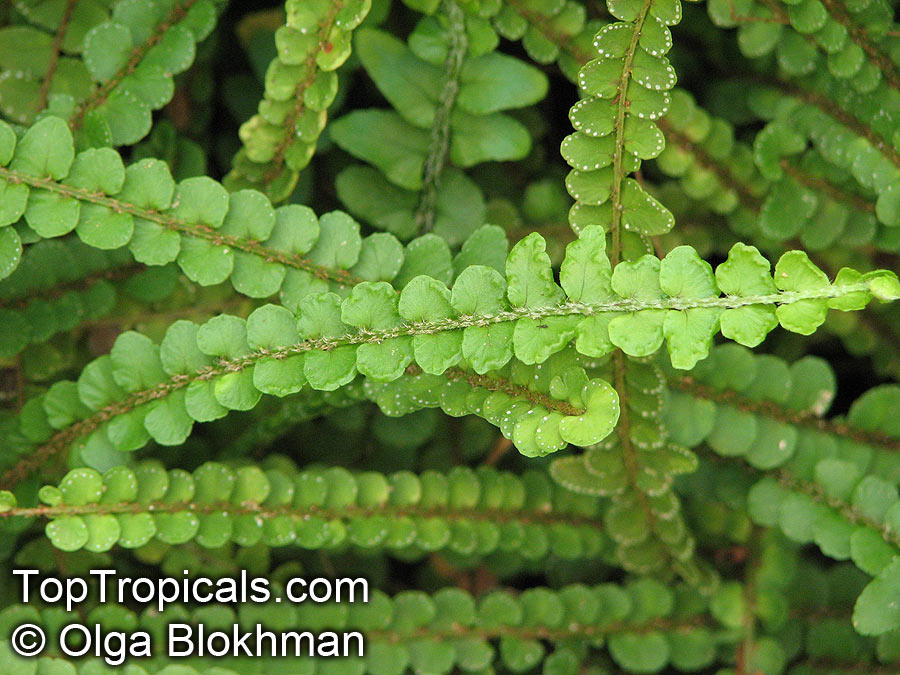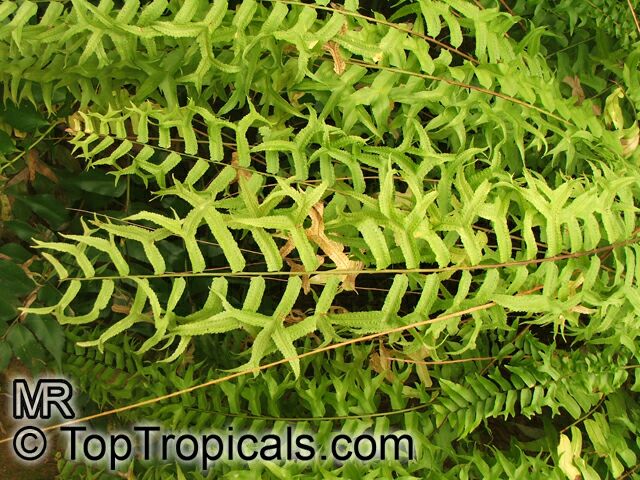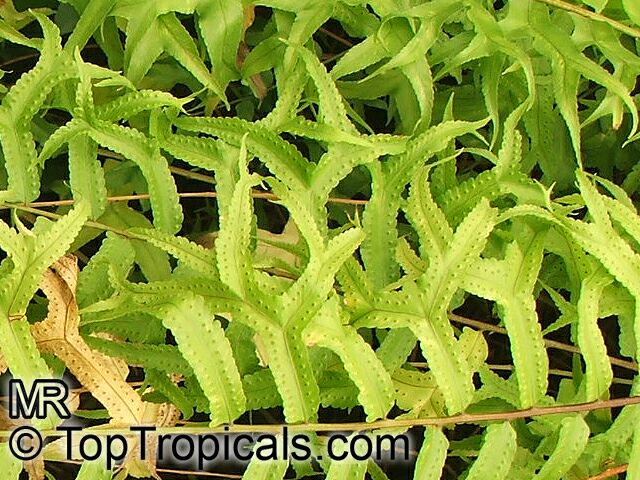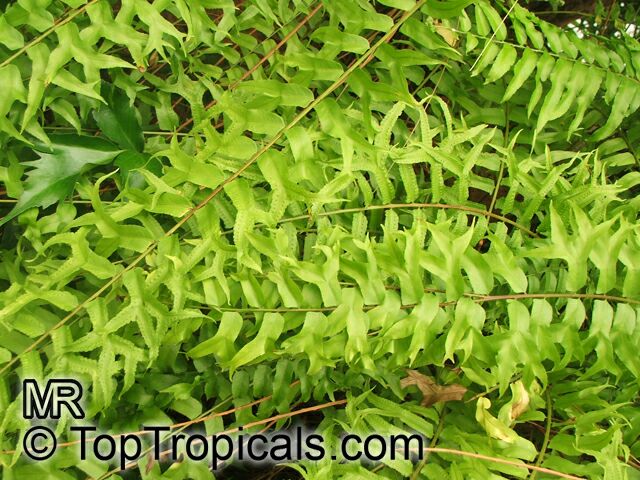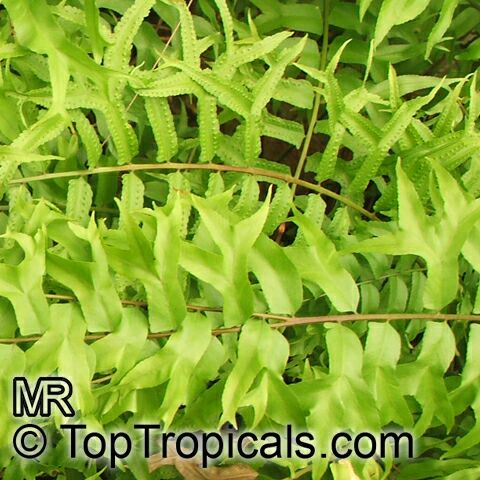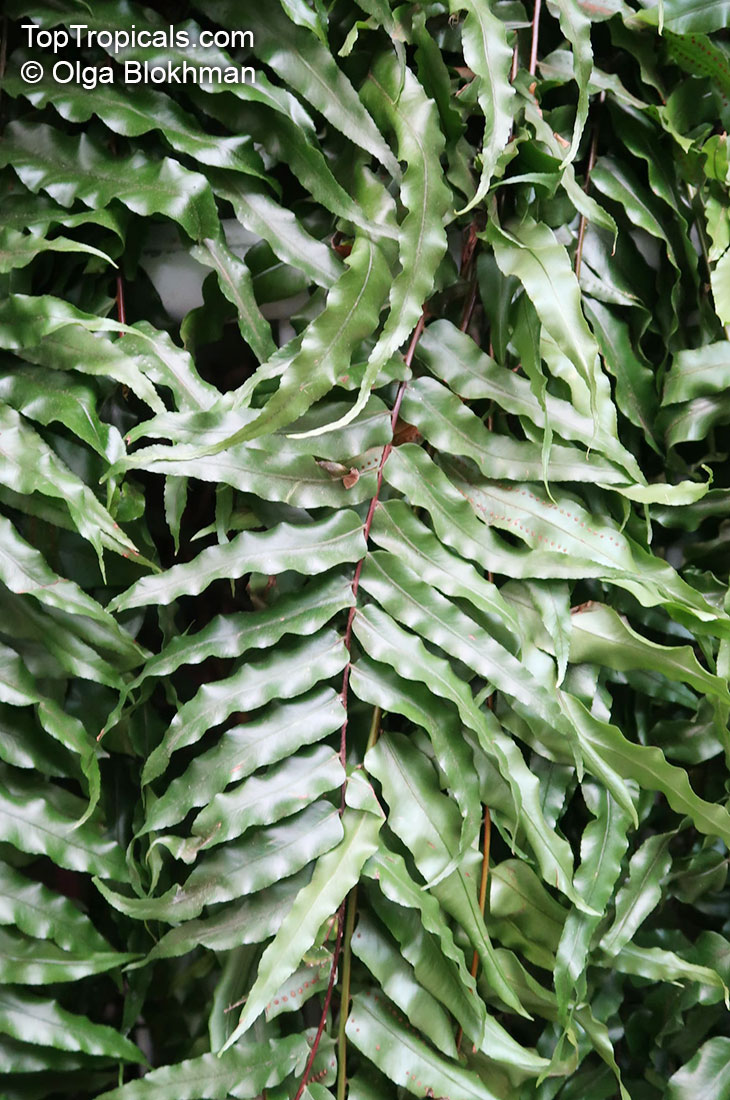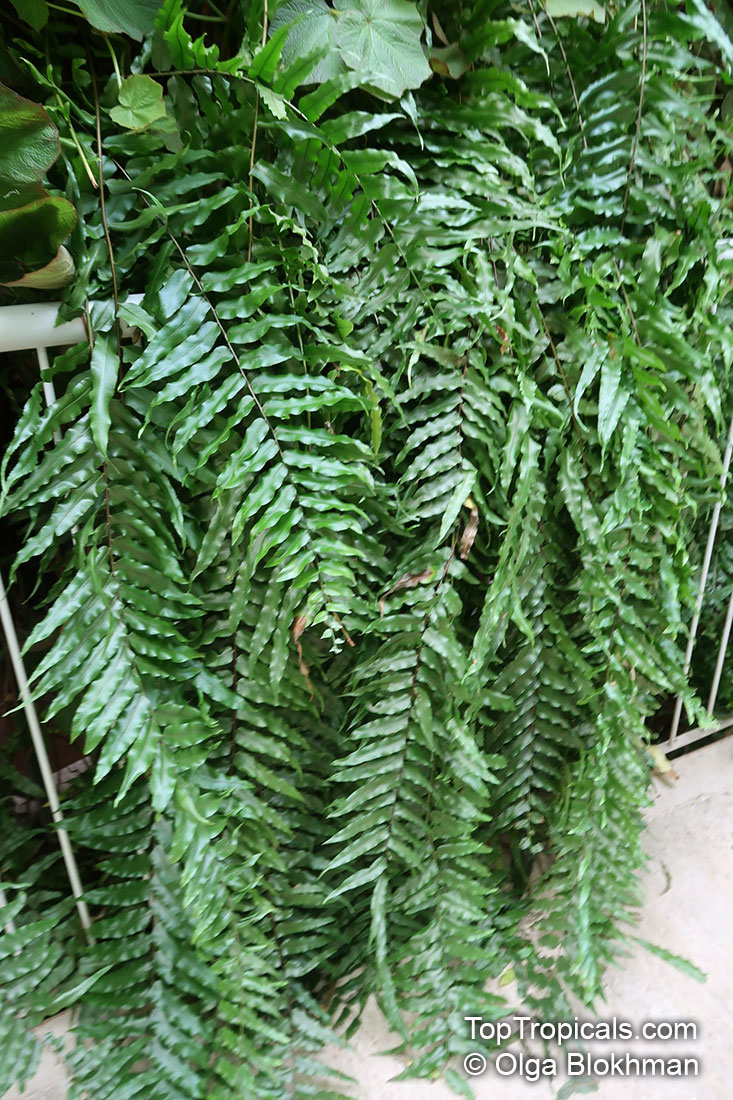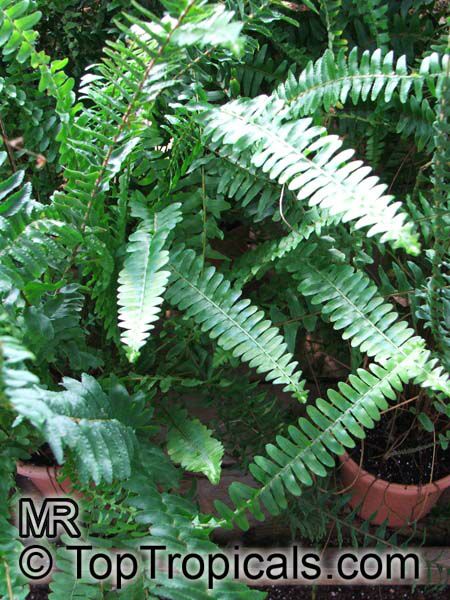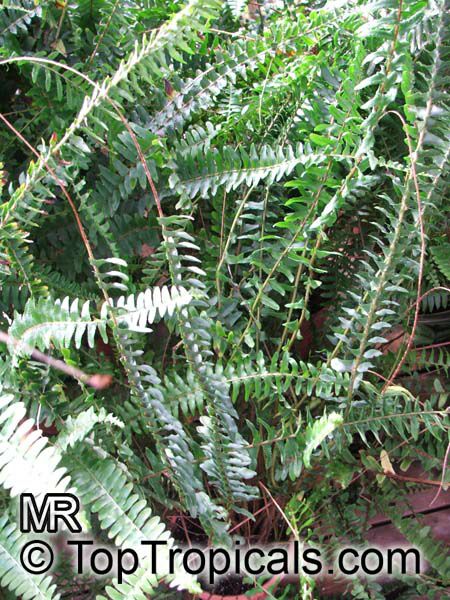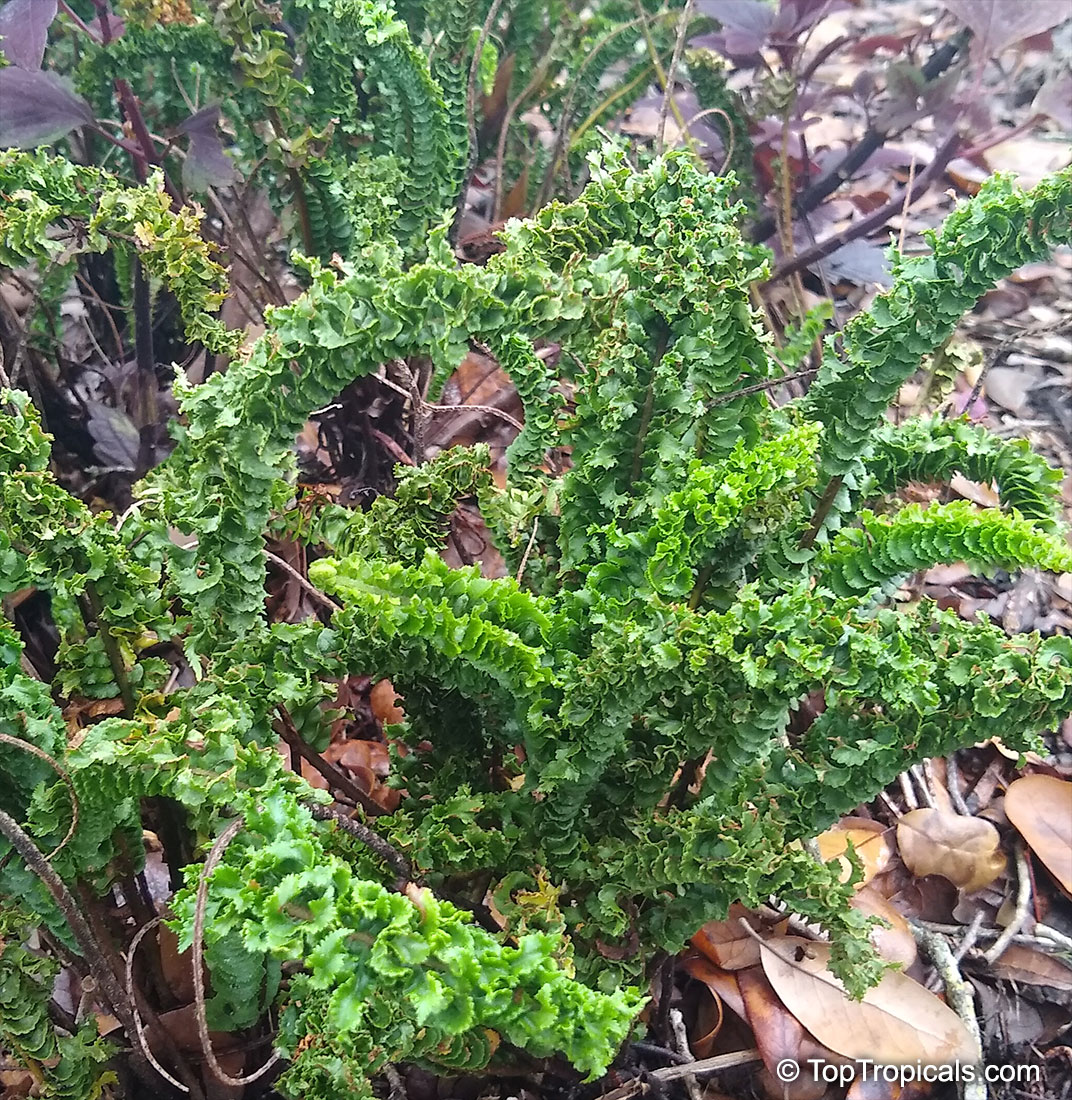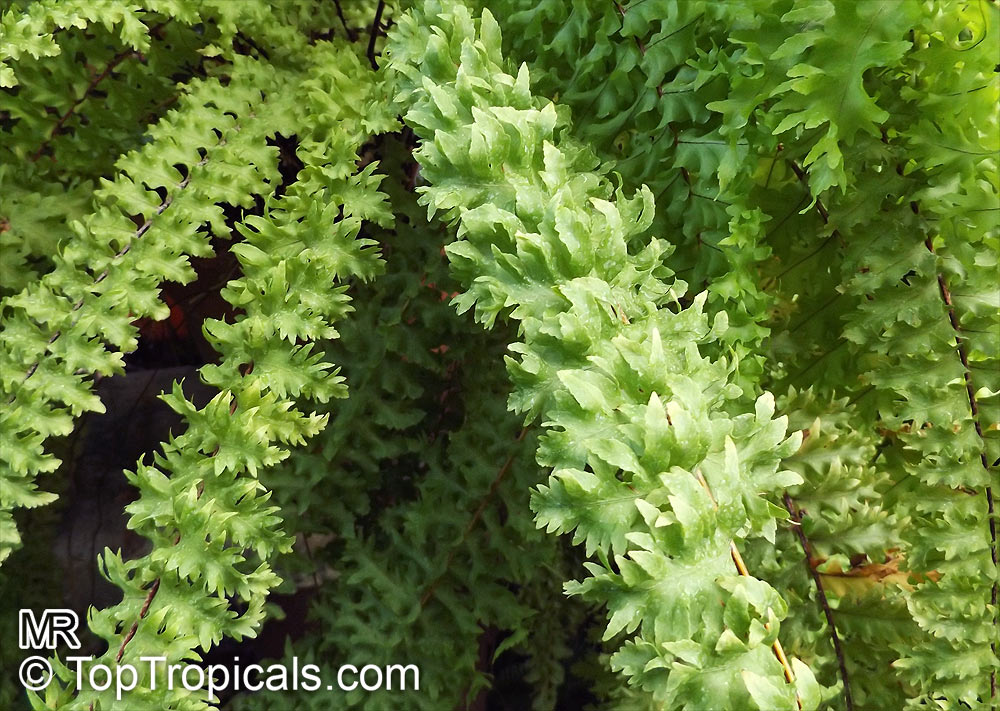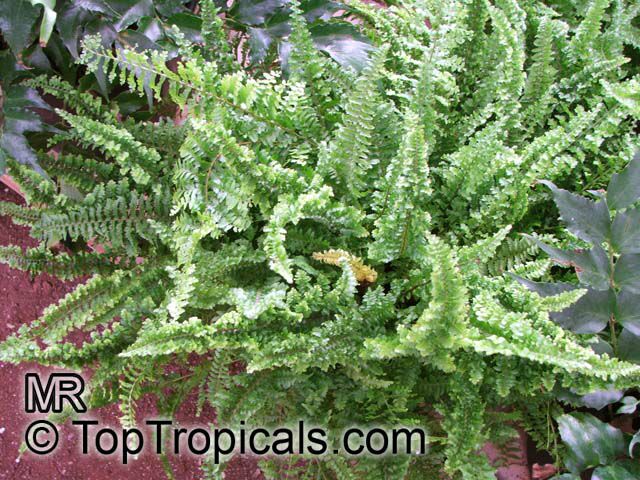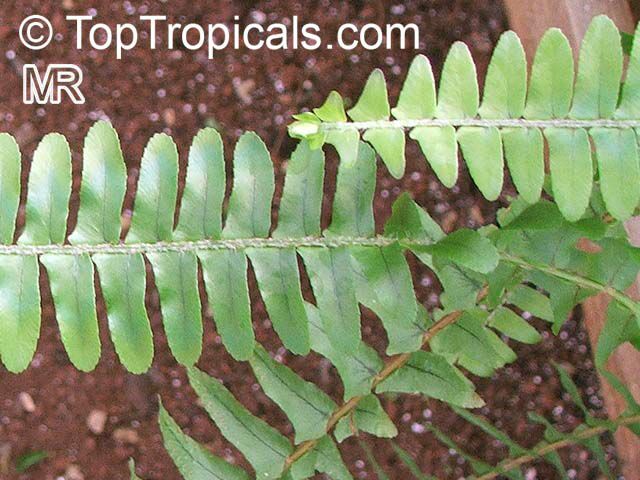Nephrolepidaceae - Botanical Family
Top Tropicals Plant Encyclopedia
| Number of plants found: 3 |
Botanical names: Nephrolepis duffii, Nephrolepis cordifolia Duffii
Common names: Pigmy Swordfern, Little-leaved Swordfern, Fishbone Fern, Lemon Button Fern
Family: Nephrolepidaceae (Formerly:Davalliaceae)
Origin: Pantropical





Small light green rounded leaves on thin stems great textural interest for shade container plantings.
Botanical name: Nephrolepis falcata
Common name: Fishtail Swordfern
Cultivar: Furcans
Family: Nephrolepidaceae (Formerly:Davalliaceae)
Origin: Thailand, Vietnam, Malaysia
Hardiness: 35°F







Nephrolepis falcata (Fishtail Sword Fern) is a tropical fern from Southeast Asia and the Pacific islands, valued for its bold, arching fronds and ability to grow in hanging baskets or as a groundcover in shaded gardens. Its fronds are long, leathery, and divided into pinnae with a distinctive sickle-like curve, giving the plant a dramatic, architectural appearance. The fern thrives in high humidity, rich soil, and dappled light, and it is commonly cultivated indoors or in tropical landscapes. It is hardy in USDA Zones 10-11, where it remains evergreen, and should be protected from frost, as temperatures below 35F can cause damage.
'Furcans', commonly called the Fishtail Fern, is a well-known cultivar distinguished by its forked pinnae, where each leaflet splits into two rounded tips resembling a fishtail. This unusual feature gives the plant a lush and textured look, making it especially popular for ornamental containers and hanging baskets.
Botanical name: Nephrolepis sp.
Common name: Sword Fern
Family: Nephrolepidaceae (Formerly:Davalliaceae)






Nephrolepis is a genus of about 30 species of ferns in the family Davalliaceae (included in Lomariopsidaceae in some classifications).
Nephrolepis species are frost tender but are easily grown in mild areas in a position in full shade or partshade with moist humus-rich soil and steady high humidity. They are widely cultivated as indoor plants. In cooler climates, if they are grown in heated indoor situations, ensure they receive plenty of bright filtered light and ample water. They can be propagated by division or from spores.
It is also one of the best over all plants at removing gaseous toxins from the air, including formaldehyde.
A lush, tropical favorite, Sword Fern brings a burst of fresh green foliage with its long, arching fronds that look like nature's feathered swords. Perfect for shady spots, hanging baskets, or as a groundcover, it thrives in humidity and indirect light, but can also take some sun. Easy to grow, fast to fill in, and loved for its classic, jungle-like look, this fern is a great ground cover for Southern landscapes.
In cooler climates, if they are grown in heated indoor situations, ensure they receive plenty of bright filtered light and ample water.
It is also one of the best over all plants at removing gaseous toxins from the air, including formaldehyde.
Recommended Fertilizer: SUNSHINE Robusta - Rapid Growth Booster
Use link to repeat this search:
https://toptropicals.com/cgi-bin/garden_catalog/cat.cgi?search_op=and&keyword_op=and&language=e&family=Nephrolepidaceae
&number=10&no_change_lang=1&user=tt&sale=1&first=0

